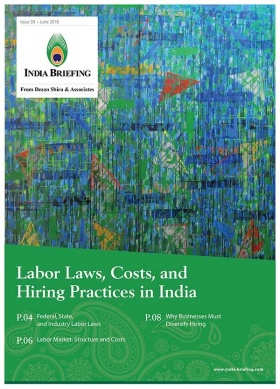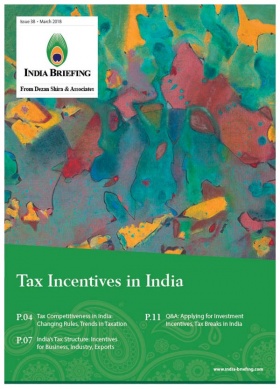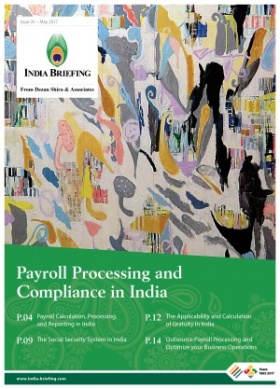Significant Beneficial Ownership in Indian Companies to be Declared by September 11
On June 13, the Ministry of Corporate Affairs (MCA) issued the Companies (Significant Beneficial Owners) Rules, 2018, mandating certain reporting requirements from companies in India.
The SBO Rules amend section 90 of the Companies Act, 2013, which deals with the investigation of the ownership of beneficial shares.
Under new regulations, all Indian companies must maintain an official record of persons holding beneficial shares in their respective entities. Further, they must file a return with the Registrar of Companies furnishing details about their significant beneficial owners (SBOs).
The SBO Rules are not applicable to companies or corporations regulated by the Securities and Exchange Board of India (SEBI) – pooled investment funds or entities, such as mutual funds or real estate investment trusts (REITs).
The reporting requirements are in line with the UK’s ‘people with significant control’ (PSC) legislation that requires most commercial entities to produce, keep, and maintain a register of any persons or relevant legal entities that have significant control over that company or limited liability partnership (LLP).
However, in India, the threshold for SBO holders is set at 10 percent of a member’s holding in the company, as opposed to 25 percent in the UK.
Who is a significant beneficial owner?
An SBO is any person who is not a registered shareholder of the company (whose name is not entered the company’s statutory register of members) but:
- either individually or jointly owns not less than 10 percent of the share capital of the company; or
- directly or indirectly exercises significant influence or control over the company.
In case the shareholders are partnership firms or trustees, the SBO is identified as the person or beneficiaries with rights to at least 10 percent interest in the entitlement to profits of the LLP.
In case a shareholder is a trust, the SBO will be any natural person exercising the decisive effective control over the trust through a chain of control or ownership.
However, if no natural persons are identifiable as SBOs, it will be the person holding the most senior management position of the company, such as the director.
What are the rules of declaration for SBOs in India?
Under the Companies (Significant Beneficial Owners) Rules, 2018, the requirement to declare the beneficial ownership status falls on both companies and individual SBOs.
Any person who is an SBO or has been an SBO in the preceding three years will receive notice by the company via Form No. BEN-4 to furnish their relevant details.
Through Form No. BEN-1, the SBO must explain the reasons why they have not registered the company’s shares in their name and give details of their direct and indirect percentage of voting rights.
This disclosure is mandatory and must be made regardless of whether being notified by the company or not.
The last date for compliance is September 11, 2018.
Further, new SBOs or changes to an SBO’s holding must be declared within 30 days, filed through Form No. BEN-2.
Failing timely compliance, the SBO may be subject to fines or can have court proceedings initiated against them by the company with regards to the suspension or restriction of rights attached to the shares.
SEBI to review ban on NRIs, PIOs holding beneficial ownership
In April this year, SEBI imposed a ban on non-resident Indians (NRIs) and persons of Indian origin (PIOs) from holding beneficial ownership (BO) in foreign portfolio investment (FPI) vehicles.
The decision caused quite the backlash with investors fearing a mass exit of foreign portfolio investments (estimated up to US$75 billion). While SEBI initially rejected this claim as “preposterous”, it sought to review the ban the next day, September 5.
Previously, the market regulator demanded that FPIs falling under Categories II and III had to report the beneficial ownership or ultimate persons controlling the entities – within six months.
Category II FPIs include regulated institutions, persons, and broad-based funds as well as university and endowment funds.
Most of these have been exempt from rigorous KYC requirements. However, SEBI stated that it could ask that information, such as name and identity proof be submitted, and barred NRIs and PIOs from beneficial ownership in FPIs.
It remains to be seen how the market regulator proceeds with the review of the ban.
About Us
India Briefing is produced by Dezan Shira & Associates. The firm assists foreign investors throughout Asia and maintains offices in China, Hong Kong, Indonesia, Singapore, Vietnam, and Russia.
Please contact india@dezshira.com or visit our website at www.dezshira.com.
- Previous Article Indian Exporters Seek China Market Access in Following Sectors after US Trade Tensions
- Next Article Brand ‘Ayurveda’ in India’s FMCG Market: Matching Consumer Preferences for Natural, Organic Products












